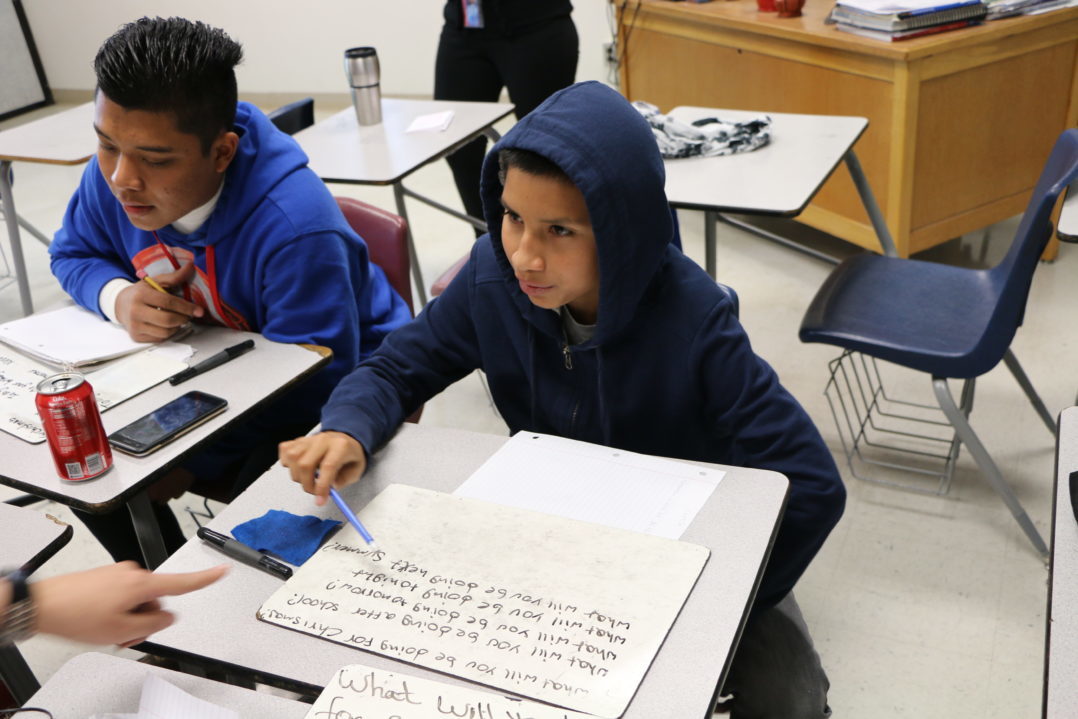Analysis: Ballot Decisions in California and Arizona Mark One Landmark Win and Two Losses for Education on Election Night 2020, Say UnidosUS Ed Experts

UnidosUS’s education policy team says they had one landmark win and two painful losses in ballot measures affecting education in Arizona and California, two states that are key to the organization’s policy work because of their large Latino and English learner populations—about half a million in Arizona, and three million in California—according to UnidosUS’s research.
Arizona, a historically conservative state, voted in favor of Proposition 208, which increases taxes for those making more than $250,000 a year to pay for statewide school funds.
“Obviously people making a quarter million dollars have better public schools because of their property taxes, so this is going to increase public school funding outside of those wealthier districts, and improve equity throughout the state,” says UnidosUS Education Policy Analyst Kendall Evans.
UnidosUS Arizona Policy Advisor, Elizabeth Salazar also welcomed the passing of Proposition 208, and said she was glad so many Arizonans—a historic 79.9%—turned out to vote, and according to exit polls from NBC News, one out of five were Latino. According to the latest U.S. Census data, Latinos make up about 32% of the state’s overall population.
“It’s important to know that Arizona has been evolving and changing for years. During the past decade, Latinos and people of color have fought hard against policies and legislation that targeted our communities and hoped to diminish our voices,” says Salazar. “We have a generation of young Latinos who were frightened by the hatred they witnessed at the hands of elected officials, but they are not frightened anymore. They are empowered and they are powerful.”
She also noted that while Arizona flipped blue on the electoral map, the margins were razor thin up and down the ballot, which means both parties are going to have to work hard to show they can advocate for all communities.
“It’s time that both parties work with and for the Latino community to make sure we have access to health care, an excellent education system, and economy that works for everyone—not just the few and not just during campaign season,” Salazar adds.
In California, UnidosUS had encouraged the public to vote “yes” on Propositions 15 and 16, with the goal of raising public education revenues and bolstering diversity in the state’s public higher education system, but voters struck both of those measures down.
Proposition 15 which would have raised revenue for public schools, community colleges, and social safety net services through a change in tax assessment of commercial and industrial property. For almost 40 years, many commercial and industrial property owners have used loopholes under Proposition 13 to avoid paying taxes based on market value.
Proposition 16 would have reinstated affirmative action in college admissions. Its opponents have always argued that state officials shouldn’t treat some populations as more valuable than others. However, diversity in admissions in the UC system—considered one of the world’s best university systems—slowed dramatically since affirmative action was taken away. Supporters of Proposition 16 say that has also slowed workforce diversity throughout the state.
“The way in which they came down on these propositions didn’t seem all that reflective of a historically progressive state,” says Evans, noting that this could have overarching ramifications across the country since California is often seen as a leader in adapting to a growing and diversifying student population, and U.S. Census data shows that Latinos, the nation’s fastest growing ethnic group, make up 38% of the state’s population.
“Reinstating affirmative action and increasing public education funds have always been top priorities for civil rights and grassroots organizations—we’re going to keep going, keep raising awareness, and I’m optimistic we’ll see these measure come to fruition throughout the nation,” says Evans.





